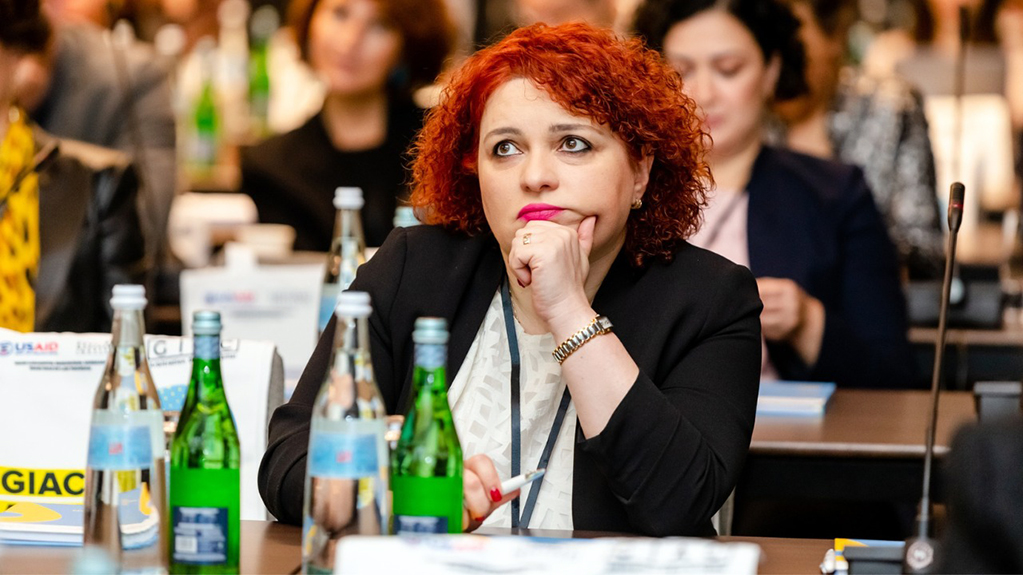The European Court of Human Rights found a violation of the freedom of expression and association in the case of Maia Bakradze, the former judge of the Tbilisi Court of Appeal, in connection with an article on discrimination. The state of Georgia was ordered to pay 4500 euros as compensation for moral damages.
News
Trending stories
- 1 Former Prime Minister Garibashvili Sentenced to Five Years in Prison After Plea Deal
- 2 Otar Partskhaladze Charged with Organizing Murder of Businessman Levan Jangveladze
- 3 Shalva Papuashvili Says Georgian Dream Filed Complaint with BBC
- 4 Georgian Dream Party Further Tightens Grants Law, Introducing Up to 6 Years in Prison
In 2005, Maia Bakradze was appointed as a judge of the Tsalka District Court for a ten-year term. He was soon transferred to the Tbilisi City Court, where he worked until 2006, after which he became a judge of the Tbilisi Court of Appeal. In September 2015, Maia Bakradze's ten-year judicial term expired. In 2015-2016, he participated in two contests announced by the Supreme Council of Justice for reappointment as a judge. He was also a co-founder and board member of the Union of Judges, an independent association of judges known for its criticism of challenges within the justice system. Despite this, the Supreme Council of Justice decided not to reappoint Maia Bakradze as a judge.
After his time at the City and Appeal Courts, Maia Bakradze appealed the decision of the Supreme Council of Justice to the Supreme Court. However, in 2019, the Supreme Court ruled the cassation appeal inadmissible.
In 2020, the former judge appealed to the European Court of Human Rights. He argued that the Supreme Council of Justice had placed him in an unequal position compared to other candidates due to his role in the Union of Judges and his critical views on the state of the judicial system in the country, and that he was not reappointed for the same reason.
"It was an eight-year struggle for a simple truth. Although I have not been able to prove this truth in my country, the European Court of Human Rights has recognized the violation and established very important guidelines. I appeal to all my colleagues, to every judge, to be guided by their conscience and not to compromise it.
This decision has shown that the Supreme Council of Justice and the court, during the proceedings, became a unified system in this dispute and opposed me," said Maia Bakradze at the press conference held today.
According to the human rights organization Social Justice Center, the European Court emphasized in its decision that most of the questions asked to Maia Bakradze during the interview by the Supreme Council of Justice were biased. These questions related to the Union of Judges and Bakradze's role in the organization, as well as his outspoken criticism of the Supreme Council of Justice. The Court noted that, given the content and number of questions related to the Union of Judges, these questions went beyond the purpose of evaluating the applicant's honesty and qualifications. They revealed bias and prejudice among the members of the Supreme Council of Justice against Bakradze due to his involvement in the Union of Judges and the organization's activities.
"At the time, the clan operating within the court did not appoint Maia Bakradze as a judge precisely because she was critical and not subject to the prevailing political dynamics. In fact, this decision is a significant reputational blow to the Clan Court and the appointment and promotion processes that have been ongoing for all these years.
This decision once again demonstrates that, throughout all these years, the process of appointing and promoting judges in the courts has not been based on merit. Instead, it has served to eliminate differing, critical opinions from the system," said Guram Imnadze, a lawyer with the Social Justice Center.
The European Court of Human Rights noted in its decision that judges' freedom of expression, especially regarding discussions on the justice system, can also transform into an obligation to speak publicly in defense of the rule of law and judicial independence when these fundamental values are threatened. According to the Court's interpretation, the requirement for judicial self-restraint does not preclude judges from participating in public debates concerning the functioning of the justice system.















